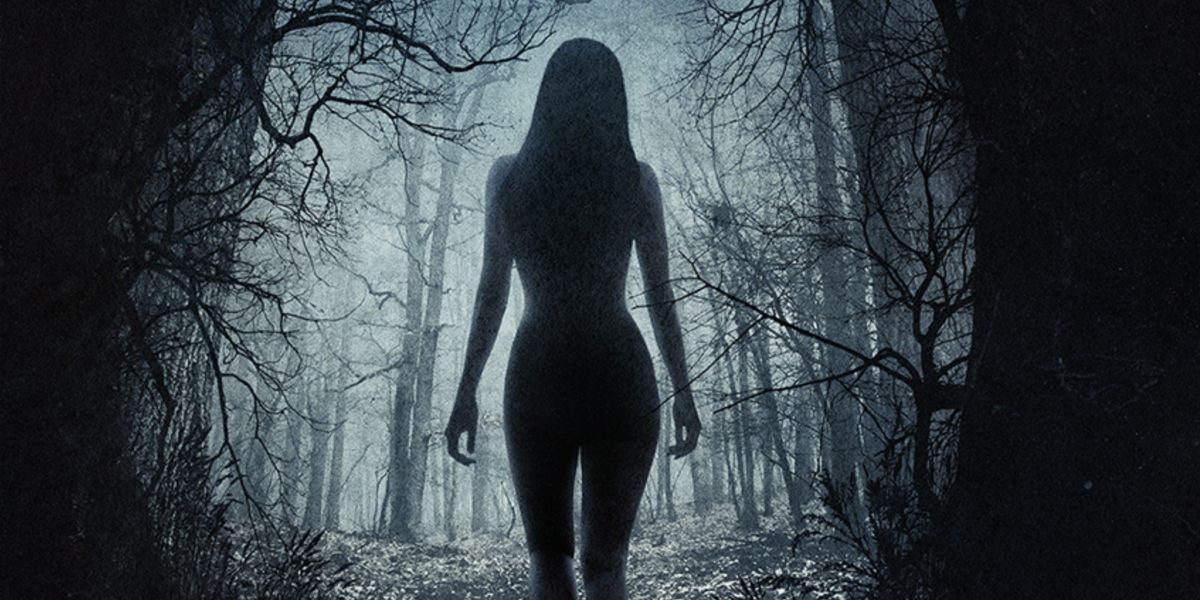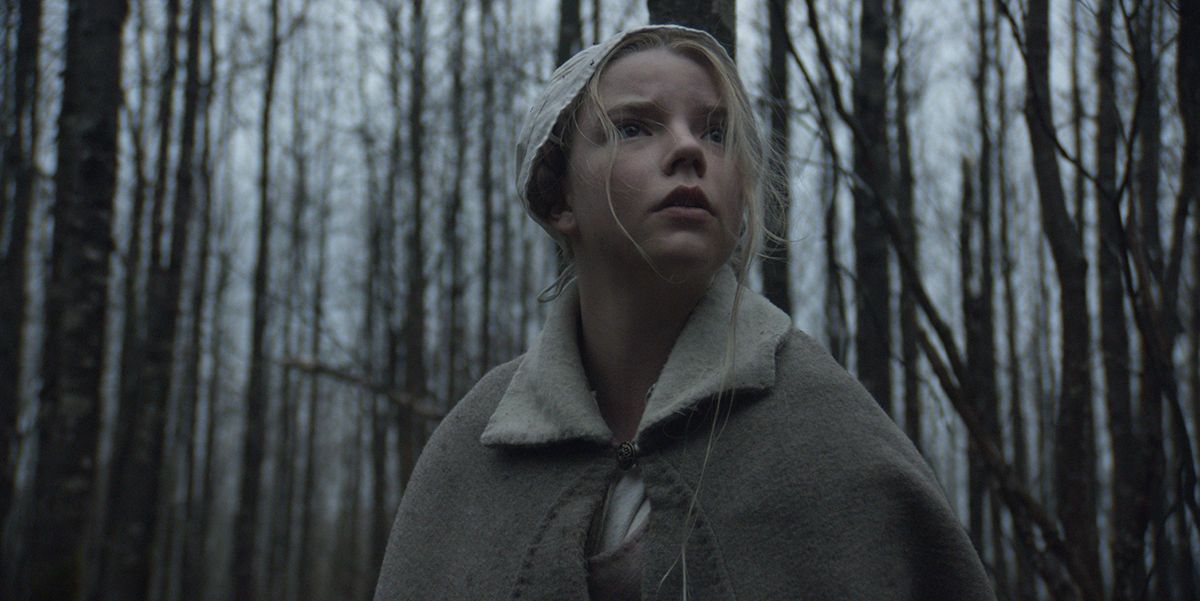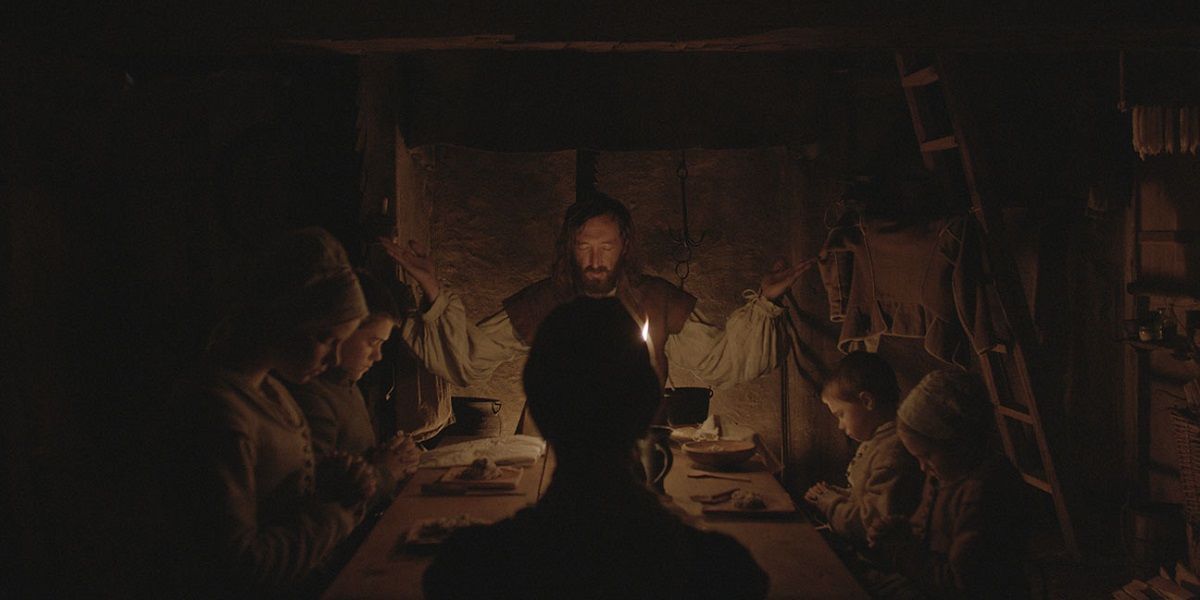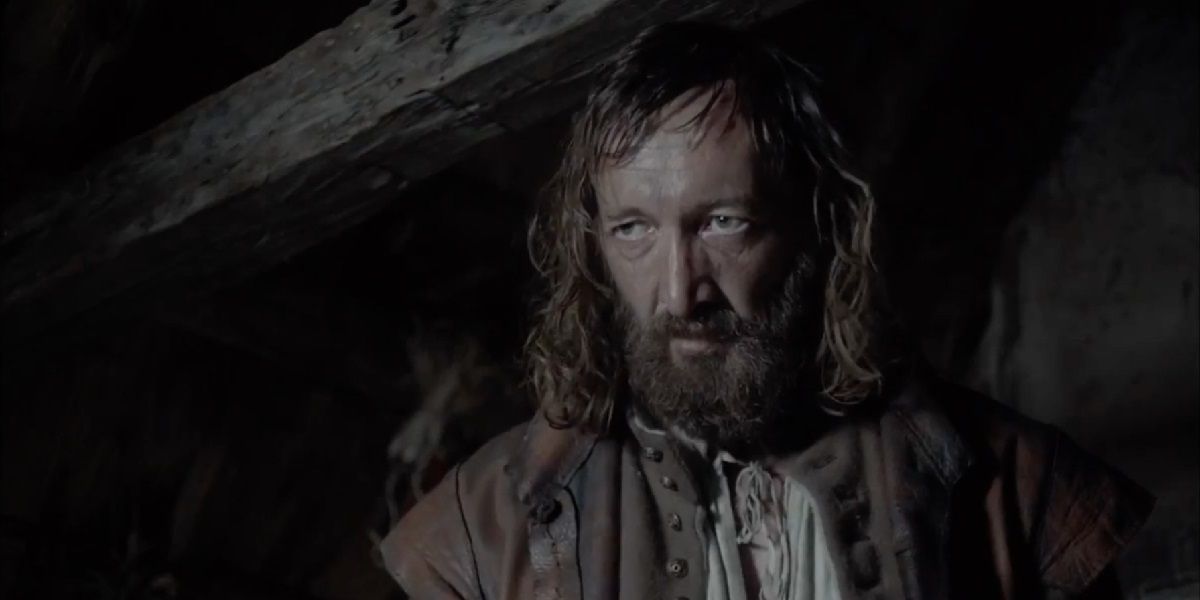The Witch is effectively unpleasant and creepy, but it works better as a psychological thriller than a horror film.
The Witch is set in 17th century New England, where a Puritan family is exiled from their community - due to the actions of the family patriarch, William (Ralph Ineson) - and sets up a homestead on the outskirts of a vast (and foreboding) woods. William, along with his wife Katherine (Katie Dickie), their teenaged daughter Thomasin (Anya Taylor-Joy), and their four other children, do their best to survive by farming in their new home, despite their inexperience in living off the land.
However, even as the family struggles to get by, terrible things start to happen. First, their infant child vanishes without a trace, while under Thomasin's care. Thereafter their crops fail and William, with his oldest son Caleb (Harvey Scrimshaw), sneaks into the woods to hunt for food, despite his wife's fears that evil lurks there - in the process, creating even more tension within the family, especially between Katherine and Thomasin. More disturbing events follow, in turn raising the question: is this all but the result of a family tearing itself apart through fear and paranoia? Or could an evil supernatural force, in fact, be contributing to the family's breakdown?
Written and directed by Robert Eggers (making his feature-length debut), The Witch is an eery and troubling, but not really flat-out scary, parable that examines the dangers of unquestioning devotion to any system of belief - something that makes the movie's subtitle, A New England Folktale, all the more appropriate. Eggers' script wraps its themes around Thomasin's compelling coming of age story thread, as her journey to adulthood has a fittingly modern edge to it - paralleling those of the young women in other recent films that (like The Witch) have re-examined the tropes of horror films past. The character is further elevated through an engaging performance from young Anya Taylor-Joy - a relative unknown - and one imagines The Witch could become to Taylor-Joy's career what 2015's It Follows was to its own breakout star, Maika Monroe.
The Witch, like It Follows, at times wears its horror movie influences on its sleeves - taking inspiration from such films as Children of the Corn and The Shining in particular, in terms of how it creates a sense of dread and maintains that throughout its narrative, even during the quiet dramatic moments. Certain images and sequences in The Witch take their cues from that Stanley Kubrick film too, to the point that sometimes Eggers' movie feels like "The Shining in 1600s New England," in terms of both its mood and general aesthetic (it even transitions between its scenes in a similar fashion). The Witch is a successful pastiche in that respect, but struggles when it comes to generating big scares and terror; instead, most of the scenarios and situations that are meant to be truly scary (not just disturbing) in The Witch come off either flat or borderline self-parody. There's entertainment value in those part of the film (especially during scenes that feature the goat Black Phillip), but in general The Witch works best when it's quieter and less in your face with its horror elements.
Eggers also takes a Kubrickian approach to realizing the world and setting of The Witch, when it comes to attention to historical detail. Not only do the movie's characters speak entirely in antiquated English, but every element of the film's production design (costumes, set designs) looks and feels very accurate to its time period - efficiently capturing the constrictive and suffocating nature of the Puritan life that it portrays. Karin Blaschke's (Bloody Night: The Legend of Mary Hatchet) cinematography similarly draws from a muted color palette and uses natural lighting schemes in order to make The Witch's setting feel both grounded, yet unnaturally gloomy at the same time. The film, as indicated before, features its fair share of unsettling subject matter and twisted situations, but most of the gruesome events in the film are expressed through suggestion to often powerful effect - further demonstrating that what the movie leaves to the audience's imagination is often more terrifying that the graphic violence it shows directly.
Taylor-Joy, as mentioned before, is the biggest standout in The Witch, as her character Thomison also goes through the most intriguing transformation over the course of the film. All the same, Ralph Ineson (Game of Thrones) delivers a solid performance as William: a complicated man who is sympathetic, yet piteous and too prideful about serving as his family's caretaker. Katie Dickie is likewise good as devoted yet emotionally damaged (and increasingly unhinged) Katherine - though, her performance teeters on over-the-top at times and brings to mind her turn as equally unstable matriarch Lysa Arryn on Game of Thrones a bit too much. Eggers nonetheless take the time to fully develop Thomison's relationship with both of her parents, creating interesting dynamics between the characters and adding layers of subtext to their storyline - making The Witch a nuanced tale about a young Puritan woman and her parents.
The remaining three main under-age characters in The Witch are not as well developed, compared to Thomison and her parents. Thomison's young brother Caleb is portrayed well by the relative newcomer Harvey Scrimshaw, but there's not much to his story; Caleb's confused feelings about his faith and the nature of sin (confusion that stems mostly from his own journey into maturation) are established only well enough to make the character a potential victim for the terrible events that soon unfold. Similarly, the youngest members of the family, Mercy (Ellie Grainger) and Jonas (Lucas Dawson), aren't fleshed out enough to have more than two-dimensional personalities - and in turn, amount to little more than tired variations on the "evil" kids trope often used in horror movies.
The Witch is effectively unpleasant and creepy, but it works better as a psychological thriller than a horror film. Eggers certainly succeeds in planting his flag as a horror filmmaker to watch with his debut here, in between the amount of research he put into creating the film's historical setting and characters (something highlighted during the end credits) and the knack he shows for generating slow-burn terror and unease through often visually beautiful (if unsettling) storytelling - though of course, there is room for improvement, when it comes to his filmmaking techniques. Overall, The Witch ought to please most filmgoers in the mood for an atmospheric flick that boasts more than its fair share of freaky events and imagery. However, those who are looking for a properly scary time at the movies (read: more than just a "disturbing" one) may be under-whelmed by what The Witch has to offer.
TRAILER
The Witch is now playing in U.S. theaters. It is 92 minutes long and is Rated R for disturbing violent content and graphic nudity.
Let us know what you thought of the film in the comment section below.




